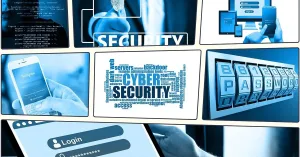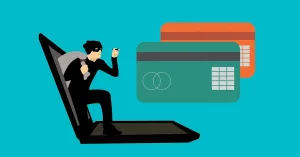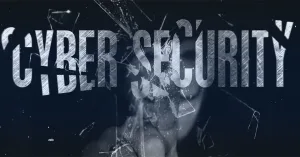What do CEOs, fashion bloggers, and Fortnite players all have in common? The internet is their most valuable tool. In 2022, getting online underpins so much of what we do. The internet allows us to meet new people, organize our day-to-day, streamline our businesses, and achieve lasting success. It’s become a vital part of our lives.
And that’s exactly why fraudsters have developed ways to take advantage of it.
The internet can often be an unsafe space. This is most true for those with little experience dealing with scammers, who don’t know how to look after their devices or themselves. Thankfully, there is a range of fraud protection methods that are easy to apply online. But everyone has different reasons for using the internet and we all use it in different ways. How do we know what fraud protection we need?
What is Internet Fraud?
Internet fraud is a broad term used to refer to a range of internet-based crimes. Most often, these crimes involve scamming internet users, in one way or another, out of money or information. Some examples of fraud are:
- Phishing
- Data Breaches
- Business Email Compromise (BEC)
- Identity Theft
- Malware
- Ransomware
Many of these attacks will be launched with a range of techniques. Some internet fraud requires your computer to defend against software-based fraud attempts. Other types of fraud are based on social engineering. This means fraudsters will prey on your personality and manipulate your emotions to get you to hand over what they want. For the best protection, you should make sure your browser and trusted sites are equipped to defend against hacks, as well as learn about how to spot scammers’ techniques.
How to Determine what Kind of Internet User You Are…
Determining what kind of internet user you are will help you work out which fraud protection best suits you. It’ll also prevent you from shelling out on expensive solutions that you don’t need.
An easy way to find out what type of fraud protection you need is to discern what you want to protect. The more sensitive the information you store online, the stronger your fraud protection will need to be.
A great question to start you off is how much could someone find out about you or your business, simply by looking at your search history and the information on your social media? Scammers will often use site data and your personal details to get the best of you. Any information that you wouldn’t want them to know is what you’ll need to protect.
However, chances are all this information is stored in a variety of different places strewn across the net. Collating what data you’ve shared and stored online, where you’ve stored it, and your passwords for these sites is a smart choice. Then, you’ll know exactly where and when to implement fraud protection and cybersecurity techniques.
Finding the Best Fraud Protection for You
Below, we’ve listed a few of the most common types of internet users. Find out which one best describes you to see what kinds of fraud protection you should implement on your devices. If you find yourself quite low on this list, you might also like to implement all of the suggestions for other internet users too, to ensure you have the highest level of protection from internet fraud.
Casual
Who they are - Casual internet users will go online for basic internet searches, to look up information on frequently used sites, and perhaps to stream content through popular subscription services. But, they will rarely download anything onto their devices aside from basic apps. They likely use a lot of the most common social media sites and also use the internet to check up on the news. The casual internet user may shop online, but only from the most popular retailers. The casual internet user will likely also have an email account that they use to communicate as well as sign up to sites.
What they need - Even if you only use the internet for the bare necessities, you could still be targeted by fraudsters. The easiest way to protect yourself is to learn how to spot sites that might not be safe. To start, you should only ever access the internet through secure wifi (never public hotspots without a password), as fraudsters could also be targeting the connection. Next, make sure any sites you visit are secure by checking for the ’S’ in the link. A secure site’s URL will begin with the letters HTTPS://. Without this ’S’ for security, your data and accounts could be targeted by fraudsters.
Internet = Best Friend
Who they are - In our modern world, many of us fall into this category of internet users. This individual’s computer/phone has become one of the most vital gadgets needed to plan and organize their life. They use their devices for admin purposes such as online banking, checking emails, backing up important documents, and storing sensitive data about themselves, as well as sharing their innermost thoughts and partaking in hobbies. Not to mention, they love to stream videos, shop online and check their social media, and Google is the first place they go when they need to win an argument. Without the internet, they’d have to try very hard to keep themselves occupied.
What they need - If you’re using the internet to complete financial transactions through online shopping or banking, you’ll want to ensure your bank and any other site you use to transfer funds is completely protected, too. Sites will not store your card details without permission. To stay safe it’s often better, though slightly more time-consuming, to enter your card information each time. However, if you do plan on saving your card information on an e-commerce site, make sure that they are PCI compliant and will encrypt any saved card data. Regularly change your passwords to frequently used sites, and perhaps consider purchasing a trusted password planner to encrypt/store this data and make sure you never forget a new password. Finally, you might also like to try a paid VPN service to protect you from fraud if you must browse on unsecured wifi networks.
Streamer/Influencer
Who they are - Streamers and influencers don’t just use the internet to enhance their lives - it’s their entire livelihood. The variety of social media accounts these public figures use will have several followers that may have taken months or years to build up. Influencers work to streamline these money-making accounts and turn their personality into their online branding. As well as sponsorships and partnerships, influencers and streamers will reach out to each other and make business connections using these accounts and their dedicated site. They may also use their site to sell merchandise or other subscription services. This makes these accounts incredibly valuable both for influencers and online fraudsters.
What they need - Despite popular belief, fraudsters are bold enough to target those in the public eye. Part of being an influencer is putting yourself out there for your followers or subscribers. However, you should still be very careful with what personal information you share on your popular accounts, so make sure to keep track of all the details you share. Learning how to spot suspicious private messages will ensure you know when a fraudster is trying to target you. You should also report and block any comments that look like they could be scams, to protect yourself and your followers. To add to this, if you market merchandise to your followers then you must ensure your site is fully compliant with data protection regulations where you’re based.
Remote Worker
Who they are - Many remote workers will use a company intranet that automatically protects them, and any work they do, from fraud. However, there are lots of types of remote workers, such as freelancers, who need to get online to complete their work. They might also use websites to formulate their diary and schedule, as well as store lots of information about customers as well as colleagues. Their email accounts are very valuable to online fraudsters looking to get in with a company through a naive employee.
What they need - Before you accept a job as a remote worker, make sure to ask your potential employer about what protections are in place to ensure your data will be safe. As a remote worker, your company or business may also provide you with fraud protection, such as a VPN, to use on your work devices. If you’re a freelancer or don’t have a separate device for your work, you might want to consider VPN protection for your phone or computer. Make sure to follow any guidelines your IT team or management has set out when it comes to where information can be stored and how often passwords must be changed. You should also alter the visibility and privacy of any social media you use that lists your place of employment and contact details, such as LinkedIn.
Small Business Owner/Manager
Who they are - Depending on the size of the small business, there may be a team of employees working under them or it might just be the small business owner. The small business owner will not only manage and maintain an eCommerce site. They may use the internet to send, submit and store invoices and financial records, as well as employee and customer data. They will likely have a digital marketing and branding plan that spans a vast range of social media sites, as well as a blog filled with SEO content. The public nature of the business and the breadth of their information spread across the internet makes small businesses easy targets for fraudsters.
What they need - Small businesses, no matter how small, can fall victim to almost all of the internet frauds listed above because they have the most to lose, thus fraudsters have the most to gain. The more people that work for your business, the more vigilant you need to be when protecting your staff, as well as ensuring they are not fraudsters themselves. A rigorous vetting process for your employees, as well as a thorough guide to how to use the internet at work, is the best practice for fraud protection from within. When it comes to financial protection, if you have the funding and resources, you might like to hire more than one accountant, so that no individual has access to all your financial data. Only online banks with trusted business accounts, and make sure you keep the numbers for fraud protection lines handy and easily accessible, just in case anything should happen. Finally, make sure business bank statements are mailed to a separate address from where your business is registered, perhaps directly to your home.
Sources
https://www.fortinet.com/resources/cyberglossary/internet-fraud
https://www.bannerbank.com/financial-resources/blog/tips-to-prevent-online-fraud#.Yxnxxi8w3BI
https://www.bajajfinserv.in/insights/10-ways-to-safeguard-yourself-from-online-frauds
https://www.lifelock.com/learn/internet-security/safe-online-shopping
https://www.builderfly.com/is-it-safe-to-store-credit-card-details-on-ecommerce-sites/





















Add comment